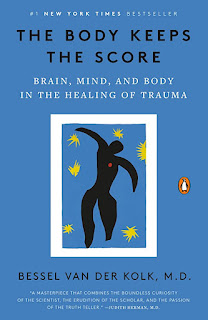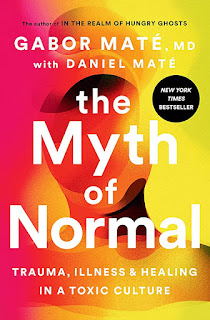‼️ Think and Grow Rich by Napoleon Hill ‼️
Rating: ⭐️⭐️⭐️⭐️
👉 Buy this book! 👈 through my link and help me build this website! 😊
Where I shall start this time? The book was originally published in 1937 which makes it one of the oldest and greatest motivational books of all time.
I live in the 21st century and the very first biography of a successful man I have read on my first trip to the USA was biography of Steve Jobs written by Walter Isaacson. Naturally, his story influenced me and he has become one of my heroes.
Nevertheless, in Think and grow rich, you would hardly look for such “modern” heroes of capitalism. (Commentary mentions Bill Gates and Steve Jobs regardless of this fact.) But who where they? Who were the heroes of 1937? Would you be surprised if I mention people such as Thomas A. Edison? Henry Ford? William Wrigley Jr.? George S. Parker? John D. Rockefeller? Woodrow Wilson? Theodore Roosevelt? To me, they all sound like long dead historical figures.💀 ⚰️ But let’s presume that once those people were alive and got it right. Would it be then interesting book to read?
I think it would. Let me say straight away that this book won’t give you any concrete example of how to become rich. It gives you something more. It gives you the principles behind becoming rich, the mindset. It also explains you how to think and how to look for right opportunities.
No wonder this book is considered to be a foundation stone of modern motivational speakers. Napoleon Hill* was apparently one of them in the times we can hardly imagine. In the other words, he was a motivational speaker long before Tony Robins, Brian Tracy, Jay Shetty and others… Many of those aforementioned have read and were inspired by this book.
What I find interesting on the particular edition I have read (published by Penguin, 2005) is that there was a commentary for 21st century written by Arthur R. Pell. I have to articulate that even that commentary appears to be outdated in the era of Elon Musk and Jeff Bezos, but it helps to bring some of the original thoughts of Napoleon Hill into modern perspective.
I do admit that some of those principles written in this book will appear outdated even with the commentary. But the way I’m going to harness this knowledges is simple. In order to become successful, you have to surround yourself with successful people, books, thoughts, quotes, ideas and so on. I see this book merely as a program, installing a right software for my mind. The software of success.
Are you ready to read what caught my attention? Let’s go then!
Thoughts 💭 are things
T. A. Edison
Aren’t they? This quote reminds me that we are all perfectly capable of imagining and bringing things into reality. We should not forget that and continue to do so every day.
Failure is a trickster
Every successful person was once a massive failure, but none of them was ever defeated. Real life is not school. In school, you fuck up one answer, one exam and you are fucking done for life. Schools merely reflect the REAL creativity one is capable to bring over to the table. To fail in school is not the same as to fail at life. If you keep trying, you will eventually succeed. Think about SpaceX and how many rockets they have to launch before they “figured it out” and they are still figuring it out as they continue to produce new types of rockets!
Persistance
No matter what, always persist! By reading this book you are likely to discover that Henry Ford and Elon Musk have much in common in terms of their persistence. Henry Ford continued to be told by his engineers that it would be impossible to build V8 engine, which would be casted out of one single piece of metal. They failed and tried again until they built V8 engine.
Autosuggestion
Now, what I found extremely interesting are the references to human psychology. 1930’ are the era of Viennese School of Psychology including Sigmund Freud. Freud discovers “unconscious mind” or “Unbewusste” as it is called in German. This book suggest that you could employ autosuggestion to improve your performance by merely installing the right affirmations into your subconscious mind.
E.g.: “Every day I’m getting better and better.”
“Nothing can stop me, not even disgusting communists at Czech universities…” 😂😂😂
Again, those affirmations are used in buddhism, yoga and meditation. What I find amazing is that those principles were well known already in 1930,’ but did not penetrate mainstream society.
Imagination is vital 🦄
Malcolm Gladwell suggested in his Outliers that mere intellect is not enough to produce success. Some people are smart, but not successful. Great examples are legal lectures at Czech universities. Unfortunately, many of them lie on the autistic spectrum regardless the fact they are smart. They lack imagination and they are not capable of transferring their knowledge on their students. Their lectures are boring and imagination lacking. If student follows through, he or she is likely to become an automatised robot, without much imagination. As the consequence, I believe, that these students cannot be simply successful in the game of life.
Now, the book mentions two types of creative minds:
(a) Synthetic imagination
This one is based on actual knowledge acquired through learning, listening, reading, observing etc. The book uses example of Edison and how he invented a light bulb. 💡It is said that Edison tired 10.000 different ways to create a light bulb. Finally, he employed an idea with vacuum, because he has read about somewhere. Bang! 💥 The light bulb was born and the thread lasted for 8 hours.
(b) Creative imagination
Here Napoleon Hill refers to the “Infinite intelligence.” Again, this area is overlapping with spirituality, buddhism, yoga nad meditation. It represents something which is created by our mind. It also could be called as premonition, hunches, 6th sense or simply gut feeling. It is the purest way of creation.
Which form of creation is better? None, they are equal. The only thing that counts is creation itself.
Desire
“In the beginning was the Word, and the Word was with God, and the Word was God.”
As I’m always saying, I’m agnostic, I believe in no God. But I’m trying to show that everything starts with desire, which then translates in ambition and then into action. Hill often refers to desire in relation of money and to where it all stems from.
Three feet from gold
Simply refers to a picture we all have seen on the internet. For me it is a proof of how timeless this book is. The original story includes goldmines. A man from Maryland goes on his search of gold in the gold rush. He finds a vain of gold and puts enough capital to mine it. But before the investment is paid for the vein of gold runs out. He then sells all expensive equipment and retires back to Maryland with massive losses. But the original mine is examined by one of his employees. The employee calls for mine expert who says that the vain of gold will continue 3 feet from the place where it was lost. He is right and mine is reopened, but not by the original owners. The story is timeless and it simply says: NEVER EVER DARE TO GIVE UP!
Lucky 🍀 vs Unlucky People ☘️
The book refers to a survey carried a long time ago. In the survey were people asked if they see themselves as lucky or unlucky. The result was 50/50. With only difference: Lucky tended to remember good things in their life. Lesson: The choice is yours. You could see yourself as lucky or unlucky, but it has nothing to do with actual luck. 😂
Psychological resilience
I found this point particularly interesting. Hill mentions a condemned man who is about to be electrified in two hours. Hill asks how he feels. He says he is at peace with himself as he has nothing but troubles in his life. Soon he will be asleep and have no more troubles. The condemned man has made a conscious decision to accept the reality.
“Do not worry over conditions, once you have reached a decision to follow a definite line of action.”
We all know these stories. Usually, it is something what went wrong or to be more precise something what went differently than we imagined. Boyfriends/Girlfriends, businesses… Events of all kinds in general. The important fact is that you could preclude it from happening. By your conscious decision and finally let it go…
Set of principles I’m acquiring from this book:
(1) Reach your decisions quickly.
(2) Once you reach them, do not change them and persist.
(3) Burn the bridges so there won’t be a way back. It will help you to succeed.
(4) Be brave. The book refers to stories of American independence and people like Thomas Jefferson, General Lee, Samuel Adams etc. I did enjoyed this part of the book very much. 😁
(5) Experience is tricky. What work for one might not work for another. Never be therefore be afraid to try new things or apply new ways just because it did not work for somebody older.
Conclusion:
This book is the ultimate celebration of capitalism. I bet it would have been proclaimed as dangerous and forbidden in communist states. People would be thrown in jails for reading it and their minds would have to be corrected with “Red books.”
I loved it. For anybody who wants to “Think and grow rich” is this book a Great Leap forward. For somebody who has already read a bunch of books on success, I would recommend them, to employ this book as a “sustainer of a great and rich mindset” with the benefit of reminding themselves what is important. Therefore 4 stars and not 5.
⭐️⭐️⭐️⭐️
👉 Buy this book! 👈 through my link and help me build this website! 😊
Coming up next!
Walden and Civil Disobedience by Henry Thoreau
Feel free to like, share and comment or recommend books you find inspirational yourself. I’m keen to hear about them.
Peace 🧘♂️✌️🌱
________________________________________
* Napoleon Hill apparently wrote more books about success (e.g The Law of Success - his first bestseller). He organised seminars where he taught people how to get rich.












Comments
Post a Comment